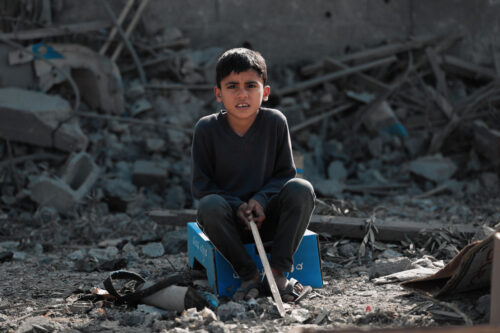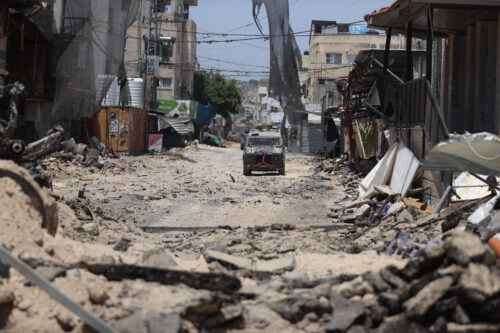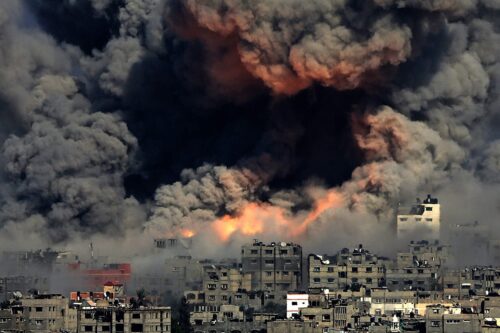Checkpoints and Restrictions on Movement: The Impact on Everyday Lives.
The system of checkpoints, permits and barriers that exist in the Occupied Territories affect Palestinians’ access to services that, for the rest of us, are so ingrained in society we often take them for granted. The effect this has on individuals, families and society is hard to comprehend as we enjoy relatively unrestricted free movement of goods, people and services.
Here are some examples of the restrictions Palestinians have to face on a daily basis:
- The separation wall: Palestinians in the West Bank are segregated by a 440km wall that Israel started to build in 2002. In July 2004, the International Court of Justice (ICJ) declared it illegal. However, 10 years after

, the construction continues. The wall has confiscated important parts of agricultural areas and natural resources. It has separated families and left people impoverished.
- The checkpoints: Hundreds of military checkpoints and barriers on West Bank roads allow Israel to monitor and control travel in much of the West Bank. Checkpoints are not only time consuming, they are also humiliating and affect people’s life choices and opportunities.
- The forbidden roads: Israel has created a segregated road system that severely restricts freedom of movement for the Palestinians. You can have a look at this infographic for more information.
- Permits and IDs: Palestinians are forced into a complex and restrictive ID system, which determines the choices and movements they can make in life. To live or work somewhere they do not have the correct residency ID for, Palestinians must complete a cumbersome and often unsuccessful permit process. Palestinians without Jerusalem residency are barred from entering Jerusalem or Israel, making jobs, healthcare and even marriage difficult.
These restrictions severely affect the freedom of movement of Palestinians but they also are a major factor in increasing poverty and disadvantage. Unemployment is rising in the West Bank, leading people to rely to family networks, charities and even to work in the illegal Israeli settlements. Their resident ID or the ability to access work being a major factor in what choices they have.
The lack of freedom of movement Palestinians have has had a major impact on their health and has led to deaths and suffering, including of women forced to go into labour waiting at checkpoints. The right of women to ante-natal healthcare is something too often denied and restricted for Palestinian mothers.
Checkpoints and permits also seek to dehumanise Palestinians. They limit the ability of many to achieve and plan for their futures. They limit opportunities and dreams and they limit adventure and exploration. This has had a negative impact on educational attainment and has also meant many talented Palestinians are forced into inadequate temporary employment they are overqualified for.
Prior to 2005, Gaza was directly occupied and was crisscrossed with a complex network of roadblocks and checkpoints. One of our field staff told us “now we have the siege and before we couldn’t even go from one road to the next sometimes. At least we can move around Gaza, but just not out of it!”
The true lived impact of this inhumane system is immense and complex. Too many Palestinians have lived negotiating their lives around what they cannot do and where they cannot go. The humanitarian impact has been higher unemployment, more avoidable deaths and illnesses and negative psychological effects on the population. Whilst we can help by working to alleviate poverty and supporting healthcare and education, it is also important for us to raise awareness of the challenges Palestinians must face and what they experience every day.
Calculate your Zakat
Confused about how to calculate your Zakat? Try our simple-to-use calculator




